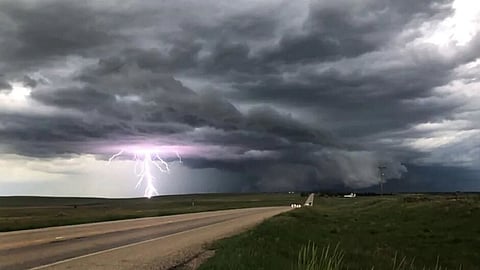

Alberta, Canada’s most energy-rich region, is seeing the fastest rise in energy poverty, according to a new report from the Fraser Institute.
The study reveals that between 2019 and 2021, the share of Albertans experiencing energy poverty — defined as spending more than 10% of household income on energy costs — jumped by over 80%.
That's despite Alberta’s abundant oil and gas resources.
In fact, one in five households are experiencing some form of energy poverty across the country, according to authors Elmira Aliakbari and Kevin Chan.
The report found that 20.7% of households earning between $31,200 and $55,000 experience energy poverty. Among households earning less than $31,200, the rate rises to 22.1%.
While Alberta’s increase is the most striking, Atlantic Canada continues to have the highest overall rate of energy poverty, with 24.6% of households affected. Saskatchewan also has a relatively high rate at 13.9%, while British Columbia has the lowest at 8.1%.
One factor contributing to the variation across provinces is energy pricing. British Columbia and Quebec, which benefit from abundant hydroelectric power, have among the lowest electricity costs in North America.
In contrast, Alberta and Saskatchewan rely more heavily on fossil fuels, and residents face higher utility costs in addition to taxes.
The taxation difference is espeically evident compared to the United States. According to a 2023 Hydro-Québec report, many Canadian cities have lower electricity costs than the North American average, but Alberta’s largest cities — Calgary and Edmonton — have some of the highest rates in Canada.
Additionally, fuel prices and carbon taxes contribute to higher overall energy costs in Canada compared to many US states.
“Policies that increase the price of oil, gas, and electricity will force more Canadian households into energy poverty and intensify the financial strain on already vulnerable households,” said Elmira Aliakbari, co-author of the study.
While energy efficiency improvements have helped mitigate rising costs, energy prices in Canada have increased faster than household incomes over the past two decades.
With ongoing economic uncertainty and fluctuating energy prices, the issue of energy poverty is expected to remain a major policy challenge across Canada heading into the federal election.
Fraser’s numbers are corroborated by other groups such as Eficiency Canada and even the federal government.
A study by McGill University last year found a correlation between energy poverty and health. The researchers found that, compared to those who were able to access and afford the energy services they needed, energy poverty was associated with a greater likelihood of poorer self-rated general and mental health.
Those factors are known to be strong predictors of higher levels of illness, translating into an increased risk of hospitalization and even death.
“Research has shown that a cold indoor temperature is associated with an exacerbation of some chronic diseases, so energy poverty is cause for concern,” Mylene Riva, an associate professor in the Department of Geography wrote in The Canadian Journal of Public Health.
“Given the high proportion of Canadian households facing energy poverty, with demonstrated implications for population health, the results from this study make a strong case for energy poverty to be included in discussions about a just energy transition towards future climate resilience in Canada.”
